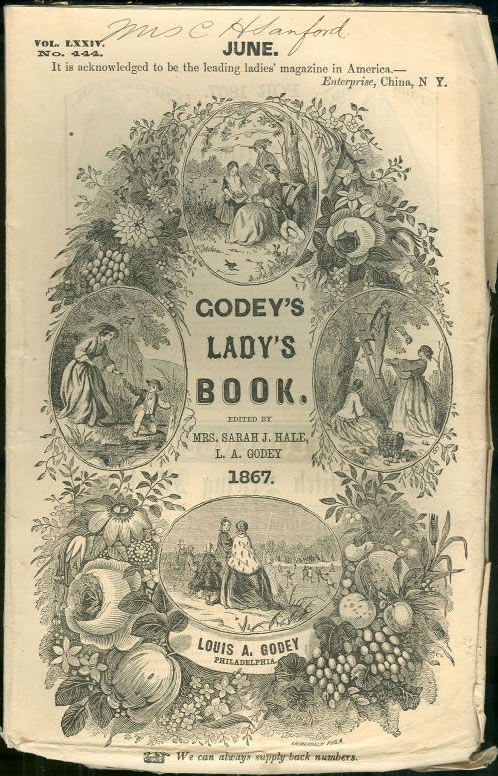A Thanksgiving Proclamation to Unify a Nation
Sarah Josepha Hale worked tirelessly for the recognition of a national holiday called Thanksgiving.
This is Sarah Josepha Hale. You may know her as the author of Mary Had a Little Lamb. Don’t let the demure smile fool you, this woman leaned in.
She was born in 1788 to parents so shockingly progressive that they believed in equal education for boys and girls. Sarah was homeschooled and didn’t marry until she was well over the hill for her era — all of 25. Nine years after their marriage, her husband died of pneumonia while she was pregnant with their fifth child.
This aspiring author and newly single mother sold hats to make money and wrote at night after the children were in bed. A few years later, her novel decrying slavery was published (25 years before the more widely known Uncle Tom’s Cabin appeared in print). On the strength of that novel, she was offered the editor’s job at Ladies’ Magazine, a periodical that later merged with Godey’s Lady’s Book. While other publications of the era packed their pages with reprinted British articles, Sarah insisted this magazine would be written by American authors as much as possible. Early on that sometimes meant she wrote much of the content herself. She worked as editor until she was nearly 90, also finding time to write close to 50 books.
Her position at the only major women’s magazine in the country gave her a powerful platform — imagine Oprah Winfrey, J.K. Rowling and Beyonce’s influence combined. Sarah’s tastes affected everything from the nation’s literature to its architecture. Although she accepted the era’s norms when it came to gender roles, she used her influence for profound social change. Sarah pushed for children’s rights, women’s education and the abolition of slavery between pages of fashion, homemaking advice and recipes.
As tensions built in pre-Civil War America, she took on another cause. At the time, the holiday we call Thanksgiving was held at different times in different jurisdictions on any date between October and January in the United States. Or not at all. And in the South the holiday was largely unknown.
Starting in 1846, Hale used the magazine to push for a national day of gratitude. She hoped such a holiday would help to unify the North and South, even prevent a Civil War. Year after year she wrote editorials asking the nation’s leaders to declare the last Thursday in November a national holiday — Thanksgiving Day. In November 1857 she wrote,
Consecrate the day to benevolence of action, by sending good gifts to the poor, and doing those deeds of charity that will, for one day, make every American home the place of plenty and rejoicing. These seasons of refreshing are of inestimable advantage to the popular heart; and, if rightly managed, will greatly aid and strengthen public harmony of feeling. Let the people of all the States and Territories set down together to the “feast of fat things” and drink, in the sweet draught of joy and gratitude to the Divine giver of all our blessings, the pledge of renewed love to the Union, and to each other; and of peace and good-will to all the world.
Marketing wizard that she was, Sarah didn’t stick to editorials. She shifted popular public opinion by promoting Thanksgiving recipes (including the now traditional roast turkey and pumpkin pie) along with sentimental poems, stories and drawings of families gathered around the Thanksgiving table. She also wrote hundreds of letters to governors, presidents and secretaries of state as part of her campaign.

Seventeen years later, in the midst of the Civil War, Abraham Lincoln issued a presidential proclamation that Thanksgiving Day be celebrated as a national holiday. He recommended his fellow citizens, “… reverently humble themselves in the dust and from thence offer up penitent and fervent prayers and supplications to the Great Disposer of Events for a return of the inestimable blessings of peace, union, and harmony throughout the land …”
No, it didn’t help to unify a nation that year. Frankly that’s asking a lot out of dinner. But this year let’s do our best to sit down at the table together in the spirit of peace, union and harmony. And then, with a nod to Sarah’s enviable energy, let’s get back up to work for profound social change.
Laura Grace Weldon is the author of Free Range Learning, a heavily researched and resource-packed handbook of natural education. Connect with her at lauragraceweldon.com and with the Free Range Learning community page on Facebook.
Originally appeared at lauragraceweldon.com. Republished with permission.



